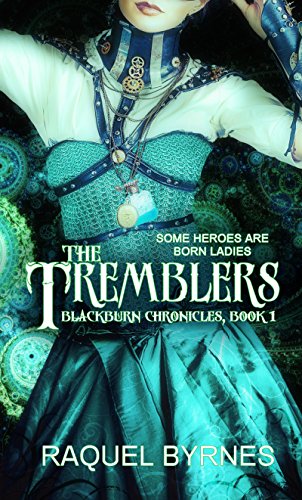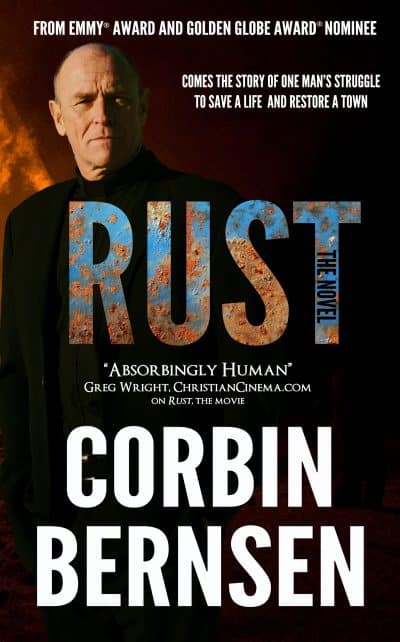I wrote this article a few years back and it ran on various websites for a while. Some people have asked about it recently, so I decided to post it on my blog. Yes, it's a bit long for a blog post, but soon you'll be able to download it into your brain without having to actually read it. That should save you some time.
1)
It’s a science.
Maybe you were absent the day your high school science
teacher addressed transhumanism. More likely, your teacher never heard of it.
Where does it fit? Biology? Physics? Yes. As well as computer science—it takes
a computer to make a transhuman. And social sciences—it will, if permitted,
change the core of culture and society. Scientific study includes:
Cryonics: Preserving the body, or
simply the brain, after death with the hope of reawakening in the future.
Gene therapy: Manipulating genetic
code for the purpose of improved health and function, longevity, eliminating
birth defects, and creating designer babies.
Cybernetics: Technology enhances life
in positive ways. No one can deny improved function for a disabled person is a
wonderful achievement of modern medicine. A deaf child hearing for the first
time brings tears of gratitude to all who witness the amazement on the little
one’s face. But how far will a healthy human go in obtaining super hearing,
vision, strength, speed, and knowledge? The transhumanist will answer that
question.
Artificial Intelligence: Non-biological
intelligence may seem impossible. The computer, after all, only puts more
information in one place than a person could possibly remember. A computer in a man’s brain would give him unparalleled recall. But consider this: if a man
is enhanced to take on the characteristics of a computer, might the computer
take on the characteristics of a man and begin to reason?
2)
It’s a social movement.
Social
science records and interprets societal movements in the past and the present.
Transhumanism, or H+ (humanity plus), is a movement in society past, present,
and future. It will affect the interrelational categories of social science:
anthropology, economics, politics, psychology, and sociology.
Anthropology: The human being as the
subject of varied studies—biology, humanities, and history—will no doubt take
on new meaning with the transcendence of the human.
Economics: Cost-effective
transhumanism will surely struggle to find validity. Perhaps only the super-wealthy
will experience the bounty of the movement. Or maybe the government will choose
those worthy, and leave the rest of the human race unenhanced. Imagine the
monetary implications of transhuman corporations.
Politics: Already, bioethics is a
force governing the present and preparing to govern future technological and
medical advancements, and how those advancements can and cannot be used in
reaching goals nonexistent twenty years ago. Government funding now pays to
research a transhuman future.
The National Institutes of Health has allocated $46 million
“to support the goals of the Brain Research through Advancing Innovative
Neurotechnologies (BRAIN) Initiative.” 1
Professor Thomas Sugar and Jason Kerestes, designer robotic
engineers with the iProject: 4MM (4 minute mile)
from Arizona State University (ASU) has been granted monies from Defense
Advanced Research Projects Agency (DARPA) to create a “jetpack to increase a
soldier’s speed and boost a PT record to that of a four minute a mile.” 2
Psychology: A massive shift in the perception of humanness
will come as cognitive ability increases, motivation and capability for
extending life becomes reality, and relationships once required for the
continuance of the race are deemed unnecessary. The resulting emotional
struggle and moral reckoning will likely be met not with therapy for the mind,
but with a tweak to the brain.
Sociology: Social class, law, religion, sexuality will take
on new roles, or no role at all.
Government and family structure will be challenged. Belief
systems will adjust, or else become channels of open rebellion against the
transhuman emergence.
3) Its aim is the Singularity.
If you’re unfamiliar with
transhumanism, you’ve probably never heard of the singularity. This is the
point in time when the human race can no longer understand or predict the
outcome of its own technological advancements. As science fiction would say,
the machines take over. In the words of transhumanist frontrunner and author,
Ray Kurzweil:
"Within a few decades, machine intelligence
will surpass human intelligence, leading to The Singularity -- technological
change so rapid and profound it represents a rupture in the fabric of human
history. The implications include the merger of biological and non-biological intelligence,
immortal software-based humans, and ultra-high levels of intelligence that
expand outward in the universe at the speed of light." 3
4) It has prophetic significance.
This is not too hard to fathom. Some
interpret transhumanism will bring posthumans into a position of waging actual
war against God. Not in the spiritual sense, but the physical. From end-times-bible-prophecy.com:
… it seems reasonable
to assume that humanity will have to undergo some sort of radical
transformation in order to plot a war against God Almighty. The arrogant
impulse already exists. All that remains is the need for an exponential
increase in human power which deludes humanity into believing it can overcome
the Lord of lords. And make no mistake about it, the Bible is clear that this
is where humanity is ultimately headed - physical conflict with God: "Then
I saw the beast gathering the kings of the earth and their armies in order to
fight against the one sitting on the horse and his army." Revelation 19:19 (NLT)
Do not confuse the
"war" with a spiritual struggle. According to Strong's Concordance,
the key word here is translated "polemos," and means:"warfare (lit. or fig.; a single encounter or a series) - battle,
fight, war." The word "polemos" appears at least 16 times in the
New Testament, and in each case, it refers to physical conflict, not a
spiritual one… 4
5) It has historical significance.
Again, it’s easy to see that
transhumanism is yet another attempt at building a tower to the heavens in
order to become like God. As addressed by author Britt Gillette:
"Let's build a great city with a tower that
reaches to the skies, a monument to our greatness!" (Genesis 11:4, NLT).
The human race set out to build a monument to its own greatness,
exalting mankind above God and extending its tower far into Heaven with the
sole intent of usurping God's glory and authority. This innate human desire did
not end with the Tower of Babel. It continues to this day, and soon it will
result in one final attempt to usurp the authority of God. 5
6)
It assumes both creation and evolution are failures.
The
argument that God’s creative power is not good enough is an obvious one. Yet,
from a transhuman mindset, it doesn’t exist at all. The transhumanist will deny
creation and embrace evolution, but then insist that even the natural process
of improving the species isn’t good enough. For all its altering of the fabric
of society, the theory of evolution is just as much a lost cause as creation.
The transhumanist can do it better. Evolution needs a techno-boost. Humanity
will become more than Darwin ever imagined.
7) Intermingling of faith and transhumanism is
on the rise.
If
considering a future of human life enhanced by technology isn’t quite relevant
in your thinking, consider that a growing number of pseudo-Christian
organizations believe transhumanism is the actualization of God’s plan for the
salvation of mankind.
What it means to be human
will change soon and you will probably experience it. So read carefully. In the
coming years computer-human interfaces will become so intimate that users may
be considered superhumanly intelligent transcendent
humans, or "transhumans". We
will have a choice in how to use vast new power. Use it for material gain? Or,
aim this power at spiritual growth. In this new era of
understanding, most will see the dead end of material gain, and see a better
outcome in a life dedicated to spiritual growth. For individuals taking the
spiritual path, the lower hierarchy of material needs will fall away and so
naturally the transhuman will become a benevolent and self-actualized spiritual being. Ultimately, life
as represented by mankind will shift from consuming material for sustenance to
a flow of information. This means that we shift to a wholly spiritual life
where truth is the way. As material needs diminish, transhumans will
increasingly be sustained by a powerful flow of Word that can be called the
Glory of God. In giving up competition and control strategies and turning to
God, we grow to be all that we can be; Christ-like.
Essential to Christian
Transhumanism is the notion that love is a
cognitive process and God expects
us to participate in our salvation by learning
how to love perfectly. In this way we
access the Glory of God, becoming Christ-like
(Christian). 6
Other sects and religions embrace the transhuman
future as a responsible continuation of faith, and quite possibly the only way
organized religion will survive. There exists a Mormon Transhumanist
Association. Proponents cross religious boundaries, as might be expected in an
increasingly secularized society. As with Christians, people of other faiths
also oppose the movement. Atheists and agnostics support or reject. From all
walks and factions, it appears there is not one group that stands united. But
many in the Christian community who truly understand the ramifications of
transhumanism consider it to be the great delusion spoken of in the Bible.
8) It is anti-Christian.
Even so, it’s not to say Christians won’t participate, to some degree, in
the rise of H+.
If you can’t put down your iPhone or
if you’re lost without your Bluetooth, then you know dependence on technology
is an ever-increasing part of modern life. If your child is the one who can now
hear you call his name, you are blessed by God. Technology is not bad. But
don’t be misled by the message that our technological transcendence to being
God-like is our salvation. The transhumanist goals of ending disease and
poverty, of attaining eternal life, of saving the planet from the humans won’t
happen. God already set a plan in motion to take care of His creation in the
way of His choosing. Any other plan devised in the mind of a created being is
doomed. Consider this proclamation in an article by Zoltan Ivstan, author of
best-selling novel, The Transhumanist
Wager.
One thing is for
sure, to the human species, the birth of an advanced artificial intelligence
will become far more important than the birth of Christ. Christmas, if it
survives at all, will be relegated to just another commercial and cultural
holiday that superstores and big business thrive on. Meanwhile, reasonable
people will celebrate AI Day, the real moment in history the savior of
civilization was born. 7
In response,
Gonz Shimura, in his article “The Trials of Transhumanism: An Assault on Christianity”,
writes:
First
off, it is clear that Mr. Istvan has a tremendous amount of “faith” in not only
our own human management abilities pertaining to these developments, but also
that any establishment of such a thing as AI would share in its consciousness,
the same moral and ethical framework as humans. Secondly, and perhaps more
importantly, as most know, Antichrist doesn’t mean “against Christ”; it means,
“instead of Christ.” It is the replacement of Christ. Therefore, what Mr.
Istvan is promoting here is quite literally the Antichrist. My particular views
are that AI itself will not be the Antichrist figure as described in Bible
Prophecy, but play a role in the establishment of the Image of the Beast. 8
9) You may be helped by it.
Again, technological advancements aren’t
necessarily evil. They may be inspired and brought to fruition by the grace of
God, whether or not the person who brings about the newest innovation
recognizes that fact or not. Christian or otherwise, you may be the one whose
paralysis is soon overcome. You may benefit from the use of techno-medical
breakthroughs to end dementia. Your
grandchild may be the product of
reproductive science unheard of when your children were born. Go ahead and love
that child, who is no less a creation of God.
A human who becomes a transhuman will need the same thing every human needs—the
grace of God that leads to salvation through the death and resurrection of
Christ. Whether or not your life is improved by whatever God allows, for however
long He allows it, there is no other way to
eternal life.
10) It is not fiction.
Transhumanism is certainly the subject of fiction.
Many novels have been written in recent years from a secular worldview, both
pro H+ and con. At least one transhuman work of fiction written from a
Christian worldview exists. (Yes, I wrote it.) Some authors believe it will
happen. Some simply use H+ to carry their stories. Movies have been bringing us
cyborgs and AI stories for years, most without ever referencing transhumanism.
There is an H+ TV series (fiction) and an H+ magazine (non-fiction). Some say
the thought and goal of transhumanism is ancient, but the word came from Julian
Huxley in 1957. He did not intend to describe a fictitious world, but a very
real one. Behind each made-up story, and hundreds of non-fiction books and
articles, is an ever-progressing scientific and cultural movement intending to
redefine the meaning of life. To recreate the human being. To realize God in
self. Not a wilder theme exists for a novel. But in the real world, the transhumanist

plans to take us far beyond imagination.
\
Sources
1 Susanne Posel ,Chief Editor Occupy Corporatism | The
US Independent, October 1, 2014
2 Susanne Posel
,Chief Editor Occupy Corporatism | The US Independent September 13, 2014
3 The Law of Accelerating Returns,
Ray Kersweil, March 7, 2001
4 http://www.end-times-bible-prophecy.com/transhumanism.html
5 Transhumanism and the Great Rebellion, Britt Gillette
6 Prepare for HyperEvolution with
Christian Transhumanism, James McLean Ledford
7 http://www.huffingtonpost.com/zoltan-istvan/ai-day-will-replace- christmas_b_4496550.html
8 http://www.facelikethesun.com/trials-transhumanism-assault-christianity/
 Without the birth, there would be no death. No
resurrection. No redemption for me and my fellow broken human beings. No
sacrifice great enough to cover us. Whatever gift I find wrapped under the
tree, it can’t bring the joy, the awe, or the everlasting promise of the Gift
that came to hang on a cross.
Without the birth, there would be no death. No
resurrection. No redemption for me and my fellow broken human beings. No
sacrifice great enough to cover us. Whatever gift I find wrapped under the
tree, it can’t bring the joy, the awe, or the everlasting promise of the Gift
that came to hang on a cross.



















